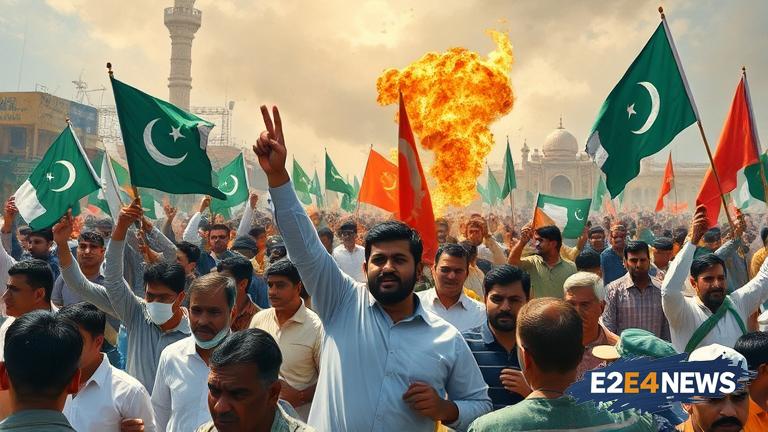The PTI, led by former Prime Minister Imran Khan, has been at the forefront of a nationwide movement, seeking to challenge the current government and push for fresh elections. Despite the imposition of Section 144, which prohibits public gatherings, the party has vowed to continue its protests, citing the need for democratic reforms and an end to corruption. The protests have been marked by clashes between PTI supporters and law enforcement agencies, resulting in injuries and arrests. The situation remains volatile, with many fearing a further escalation of violence. The PTI has accused the government of attempting to stifle dissent and silence opposition voices, while the government maintains that the protests are a threat to public order and stability. The party has also criticized the government’s handling of the economy, citing rising inflation and unemployment as evidence of its failure. The protests have drawn support from various segments of society, including students, workers, and civil society organizations. However, the government has warned that it will not tolerate any disruption to public life and has deployed security forces to maintain order. The international community has also expressed concern over the situation, urging all parties to engage in dialogue and find a peaceful resolution. The PTI has announced plans to stage further protests and rallies, despite the restrictions, and has called on its supporters to remain peaceful and disciplined. The party has also reached out to other opposition parties, seeking to build a united front against the government. The government, on the other hand, has vowed to take tough action against anyone violating the law and has warned that it will not be intimidated by the protests. The situation remains fluid, with many uncertainties and variables at play. The outcome of the protests and the government’s response will have significant implications for the future of Pakistani politics and the stability of the region. The PTI’s determination to push for reforms and the government’s resolve to maintain order have set the stage for a potentially prolonged and intense confrontation. As the situation continues to unfold, the international community will be watching closely, eager to see how the crisis is resolved and what implications it may have for regional and global stability. The protests have also highlighted the deep-seated divisions within Pakistani society, with many citizens expressing frustration and disillusionment with the current state of affairs. The PTI’s message of change and reform has resonated with many, particularly among the youth, who are seeking a more accountable and transparent government. However, the government has also accused the PTI of attempting to destabilize the country and undermine the democratic process. The situation is complex and multifaceted, with many competing interests and agendas at play. The PTI’s protests have sparked a national debate about the future of Pakistani politics and the need for reforms, and it remains to be seen how the situation will unfold in the coming days and weeks.





